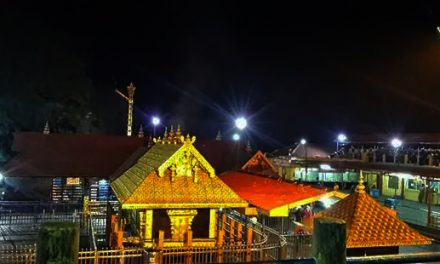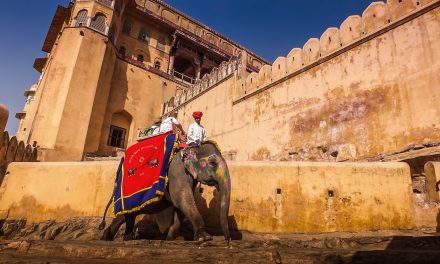The modern world runs on narcissism. Vanity is ubiquitous. Pomposity or an inflated sense of self is not avant-garde. For millennia, people have used the tale of Narcissus from ancient Greece to criticize this repugnant practice. A suave young nimrod looking for his ideal mate is the subject of the tale. Numerous women swoon over the hunter, but Narcissus believes that every one of them is prosaic and unworthy of his companionship. In the end, the goddess of vengeance Nemesis leads Narcissus to a pond, where he gets enamoured with his own reflection and dies all by himself. Freud formulated his psychoanalytic concept of narcissism by premising it on this story.
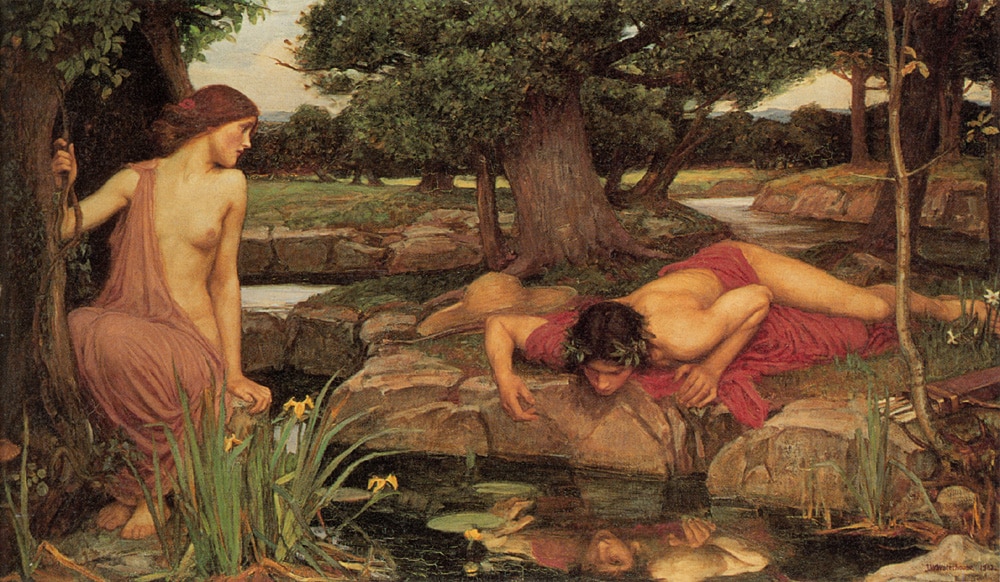
In his famous essay On Narcissism: An Introduction (1914), Freud (who regarded narcissism as “libidinal cathexis of the ego”) says
“Self-regard has a specially intimate dependence on narcissistic libido. The aim and the satisfaction in a narcissistic object-choice is to be loved.”
We are currently experiencing a narcissistic epidemic as a result of numerous aspects of contemporary culture. It’s simple to comprehend how our society encourages an attitude of self-importance and conceit. For years, the powerful entertainment and marketing sectors have piqued our wants, sated our cravings for power, and fostered a yearning for stardom. When Helen Hayes said, “Stardom can be a gilded slavery”, she probably foretold the entrapments of virtual stardom that is centred on the constant need to be virtually visible. We have never had more opportunity to convey our need to feel unique than we have now compared to any previous generation. When a service or merchandise doesn’t measure up to our expectations, we can submit a caustic online review or painstakingly stage a selfie to flaunt any moment in and of our lives. In metropolises and cyberspace, where you can retain some detachment and treat others in the vicinity as dispensable and expendable, narcissism thrives.

This practice is significantly more difficult to uphold in a rural community or tight-knit neighbourhood where anyone can know your activities and identity, and relate to it in a much more personal way. People don’t want arrogance to exist in such kind of groups, consequently it is driven out, even as all will shun you if you are conceited because they will come to know about this aspect of your personality much more easily. A full-blown narcissist lacks modesty. He has no concern for the people he harms and only seeks to boost his vanity. It can go to a point where it involves a certain ‘my way or the high way’ approach. As Emmy nominated musical comedian Randy Rainbow described a narcissist:
“If he didn’t like the narrative he’d start gaslighting you.”
In the narcissist, there is vainglory and vehemence. In the narcissist, there is a bloated amour-propre. The contemporaneous world is not only dominated by grandiose narcissists; there are also plenty of vulnerable narcissists who still crave the limelight but are genuinely afraid of being criticized and receiving unfavourable scrutiny. As “Dr. Drew” Pinsky once said
“Narcissism is not about self love. It’s a clinical trait that belies a deep sense of emptiness, low self-esteem, emotional detachment, self-loathing, extreme problems with intimacy.”
Grandiose narcissism has a couple of dimensions: narcissistic admiration and narcissistic rivalry. The first component, narcissistic admiration, includes lofty ideas, a need for idiosyncrasy, and self-promotional activities that seek social acclaim and strengthen the one’s vanity. The second element, narcissistic rivalry, includes devaluing everyone else, vying for superiority, and antagonistic acts aimed at reducing any challenge to the self-image, which can eventually lead to interpersonal disputes.
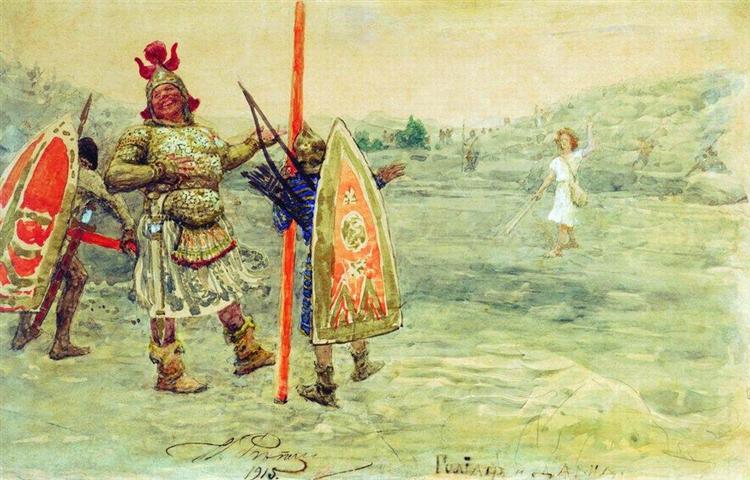
In addition to self-absorption and snobbery, vulnerable narcissism reflects compulsive psychological disquiet and vulnerability. It has been observed that vulnerable narcissists have a weak sense of self-worth and a resultant low self-esteem, whereas grandiose narcissists have greater self-esteem that is a lot more stable. As per Michael Howard Kernis, in his work Toward a conceptualization of optimal self-esteem (2003), optimal self-esteem is defined as
“A stable, authentic feeling of self-worth, with a relative absence of defensiveness and an excessively strong desire to be liked by others, and which is not dependent upon specific correlates.”
A narcissist is an individual who cannot be empathetic. Some may ask: Why do we even need to have empathy and compassion? What’s the problem in merely looking after oneself? When you are egocentric, epicurean, and always do whatever you want, you become impetuous and imprudent. You commit transgressions and even malfeasance. Your relationships suffer as a result. Others grow weary of you since you’re constantly concerned about yourself. There are times when you have to compromise your individual interests and desires for the sake of the group or the household. As a result, you become part of a flock. If you’re exceptionally gifted, you might be able to get away with a self-centred predisposition for a while. However, individuals will inevitably abandon you. It is about sacrificing part of your personal aspirations for the benefit of the collective. It enriches both you yourself and the flock in the long-term. This is a psycho-social expansion of Rousseau’s exploration of the individual-community dynamics. Rousseau came to believe in the prospect of a legitimate social contract, a covenant under which individuals would obtain a greater sort of liberty in exchange for their independence. This, he called, true political or republican liberty. According to Rousseau’s description in Du Contrat social (1762), such freedom might be achieved in adherence to the volonté générale (“general will”)—a will of the collective, so to say, that seeks the general welfare or the shared interest of its constituents.
This is traditional social theory: in order to acquire more, you must forsake certain things you seek or may enjoy. You receive very little if you exist for yourself. Today, we seem to have established a society in which everyone believes they’re stupendous, but in reality, the prospects of being phenomenal are still relatively restricted, in actuality. As a result, we have created alternative avenues where individuals could achieve prestige, such as on social media or in multiplayer gaming. These are now like full-time occupations with a lot of potential for advancement and, more importantly, glory. In these fantasy realms, individuals can satisfy many of their egotistical cravings. Data was gathered from social media profile pages in one recent study and discovered that egomaniacs utilized a variety of strategies to attract others to their social media accounts, including visual embellishments and strong language.

Narcissists appear to believe that others are genuinely fascinated in what they are pursuing. Recently, it was also seen that egotistical adolescents changed their statuses more routinely. Egomaniacs are more prone to post status updates regarding their accomplishments. One wonders how much of a true network does a social network actually establish. Stanley Milgram’s concept of `six degrees of separation’ (a phrase immortalized by dramatist John Guare) is now widely accepted. Today’s social networks are congeries of rather feeble ties. With the psychogeography of social networks having gone from virtual cities and alternate worlds to being quite decentralised and focussed on the individual, we are seeing a deracination of epic proportions where the contextualisation of the individual is secondary to the pre-eminence of the aspects of the individual personality. Friendship itself has become like philately: you keep procuring friends in a rather promiscuous and yet bureaucratised manner, with machine-learning guiding you on who is suitable to be friends with you. It is all about you, you and you!
But what if I were to say that this trend is not a recent cultural development of narcissism but involves a much deeper rot that had its origins in the times of yore. More importantly, what if I were to say that there is a much more involved geopolitical and socio-cultural battle we face around the politics of narcissism, as we try to move towards a more sustainable tomorrow?
Almanac of Egomaniacs
Ahaṁkāra constitutes one of the Antahkarana (fundamental inner faculties) spoken of in Vedanta, the others being Manas, Citta, and Buddhi. The Yogasutra discusses about the false identification of the self that must be negotiated and addressed for spiritual emancipation, with the famous verse
दृग्दर्शनशक्त्योरेकात्मतेवास्मिता I
in Chapter II, Sutra 6, which talks of how false identity happens when we believe the Seer and the instrument of perception are one and the same. The term `Asmita’ is an over-identification with something that is not our essence. In western psychology, this has been referred to as the ego. In Dharmic thought, the ego-self is believed to be observable and tactile, and it may be identified by its distinctive appearance and characteristics. It is a covering of contaminants or a shroud that forms around the life force, preventing it from having its natural effulgence. It makes one be replete with cravings, impulses, passions, perceptions, sensations, recollections, and other mental creations that cause fluctuations (vrittis) in our our consciousness (citta).
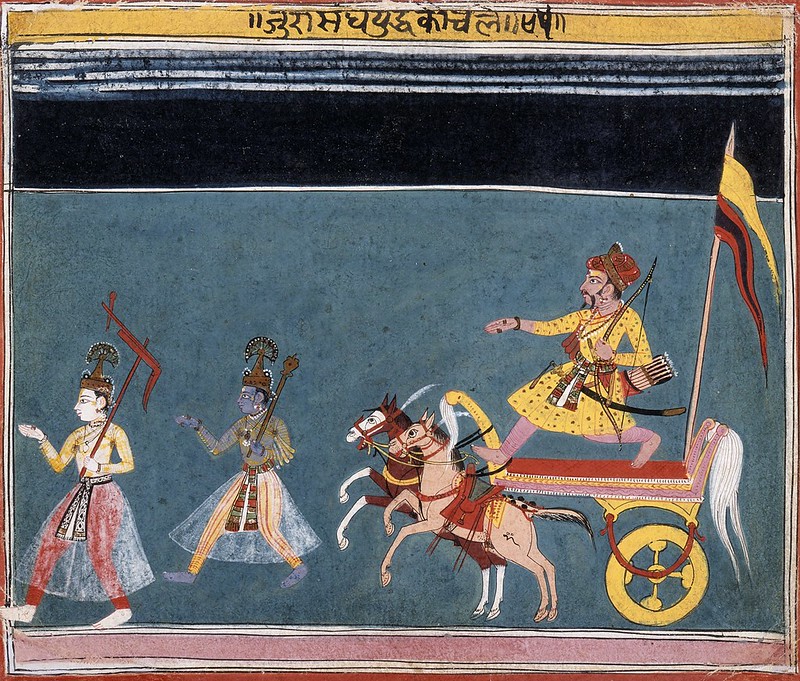
Sri Krishna advises Arjuna in the Srimad Bhagavad Gita that Ahaṁkāra must be subjected to the Lord and, ideally, eradicated, since one’s actual Self cannot be perceived while imbued with Ahaṁkāra. In Chapter 3, Verse 27, it is said
प्रकृते: क्रियमाणानि गुणै: कर्माणि सर्वश:|
अहङ्कारविमूढात्मा कर्ताहमिति मन्यते||
which means that the three modes of physical nature carry out all operations and activities, even as our true self is misled by erroneous identification with the superficial aspects of ourselves and believes that those are responsible for our actions. A hasty reading of the Srimad Bhagavad Gita by a narcissist may make them believe that Sri Krishna propounded narcissistic ideas when he spoke of himself as the supreme being. A true Yogi or Vedantin or one who has subsumed his ego into the vast expanse of reality would have a completely different take on this. It is in the paradoxical dissolution of the I-self or ego that the emergence of a greater Self comes to be, which is what is being spoken of by Sri Krishna in the Srimad Bhagavad Gita. His Self is indeed the supreme being, but it is the self that underlies all reality. That is the very Self that Dharmic thought has always spoken for.
Let us contrast this with what was happening in the Hellenistic traditions. Ovid recounted the Narcissus narrative in Latin in his Metamorphoses, and it had a significant impact on Renaissance and medieval society. The phrase employed here was
“self-love…Feed’st thy light’s flame with self-substantial fuel”
The significant role played by the nymph Echo in the Ovid version of the Greek story is frequently disregarded in discussions of narcissism and the mythology. Echo is limited to only being able to repeat the last few words of what she listens others state:
“She long’d her hidden passion to reveal,
And tell her pains,but had no words to tell:
She can’t begin, but waits for the rebound,
To catch his voice, and to return the sound.”
Echo stands for the fused hypervigilant narcissist who is forced to live her life through that of another person. To see the prominence of vanity in Hellenistic mythology, one only needs to think back to the myth surrounding the Trojan War, in which the goddesses Aphrodite, Athena and Hera competed for the distinction of “most beautiful of them all,” as inscribed on a perfectly thrown apple, boasting of their right to the honor. They gave the verdict to a shepherd they came upon caring for his cattle. Power, knowledge, or love were the three blessings that the divinities pledged the young man in exchange for his goodwill. The boy, Paris, a Trojan prince, made the choice of love and gave Aphrodite the fruit. The most winsome and pulchritudinous woman in the world, Helen the Queen of Sparta, fell in love with Paris as Aphrodite’s prize. But the decision of Paris angered both Hera and Athena, and when Helen abandoned her husband, Menelaus, the Spartan king, for Paris, Menelaus called upon all the Greek princes and kings to battle the Trojans.
The presence of narcissistic narratives, which includes within themselves commentaries on its own narrative and identity, is something that gives a sophisticated occurrence of narcissism in the occidental thought from ancient times. This has happened on the levels of diegetic (related to story-telling) and linguistic (related to language) self-reflexivity. For instance, in Euripides’ Hippolytus, Theseus could be seen narrating his own actions, such as reading of Phaedra’s message, aloud. The narcissism of the storyteller is also seen in the prologue of Apuleius’ Asinus aureus, which states: “What I should like to do is weave together different tales in this Milesian mode of storytelling […] So let me begin! Who is the narrator?” By doing so, the narrator is qualifying himself as the one possibly undertaking the discourse on the narrative, thereby dissolving the distinction of the story and the discourse on it! Then, in the Adventures of Chaireas and Callirhoe we have the words:
“And I think that this last book will prove very pleasurable to its readers: it cleanses away the grim events of the earlier ones.”
So much for self-aggrandizement! The usage of anecdotes and narratives of antiquity in modern times is also a Western construct, such as in the case of James Joyce’s Ulysses. The interesting insight into this is that the world of the ancient Greeks may have been a culture of narcissistic surpluses while the contemporaneous West may have a culture of narcissistic deficits, which fuels vulnerable narcissism. While the former was disputatious, boastful and quite infused with hubris, the modern man is sidelined, undervalued and constantly struggling, and in that struggle, he seeks to find glory and self-importance in his spectacles, his virtual realms and social networks, his altars of consumption and materialism. Only if Photoshop enhancements and plastic surgery could make a Narcissus out of the modern man, in form as much as in essence.
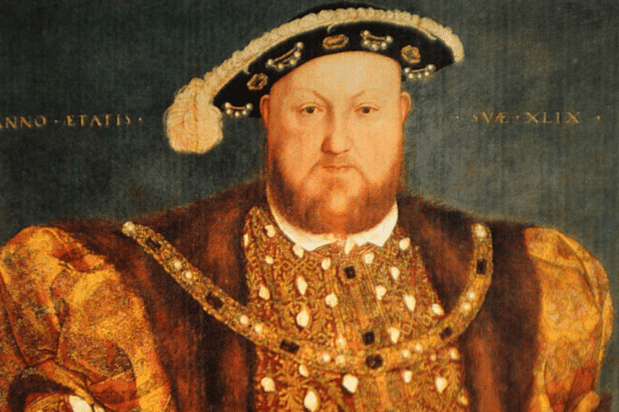
The leaders of the ancient Greeks exhibit quintessential narcissism as well. Alexander was a conceited young man who, despite being frequently characterized as a talented general deserving of adoration, caused a tremendous deal of misery for his own personal ambitions. Alexander was self-confident from the beginning and his vanity only intensified during his lifetime. Troy was Alexander’s first stop after his army entered Asia and started moving toward Persia. He viewed himself as the new Achilles and wished to witness the battlefields where the legendary Greek hero Achilles had battled. Alexander’s confidence in his own grandeur grew as he battled the Persian Empire, which was considerably larger compared to his own and started to secure victories. After defeating the Persian Empire, Alexander switched from the more modest Macedonian style of kingship to the Persian one, where the sovereign was honoured with opulent rituals and obsequiousness. Alexander ruled over a large portion of Central Asia and gave his name to numerous cities along the way. Later in life, he moved against several of his closest comrades and killed them for lacking devotion or offering just moderate censure. By the time Alexander passed away at the age of 33, he had come to believe that Zeus, king of the gods, had actually fathered him and not King Phillip II of Macedon!
Nero, the Roman Emperor who reigned from 54 to 68 CE, had Alexander’s narcissistic traits. He murdered his stepbrother and mother after publicly calling his stepfather a “doddering old fool.” He devoted the majority of his energy to ensure that Rome’s citizens understood just how fantastic he was. Nero made people sit through long stretches of his shows because he thought he was a wonderful musician—which he just wasn’t. He organized a festival called the Neronia to compete for the greatest honours in music and poesy. Even though he wasn’t particularly able-bodied, he competed in the Olympics, which were moved up a year to accommodate him. In it, he competed in a chariot race in which his chariot was wrecked in a crash and did not complete further, but strangely `won’, along with everything he competed in. The logic was that he would have won had he not crashed! Nero erected a 100-foot-tall sculpture depicting him as a deity. To ensure that the populace of the realm adored him, he luxuriously squandered; taxes rose until the Romans in the provinces grew weary of needing to pay more in order for the king to be able to organize decadent `celebrations’. While escaping his rebelling rebelled, Nero committed suicide. In the period following Nero’s death, the kingdom was torn apart by a string of civil wars.
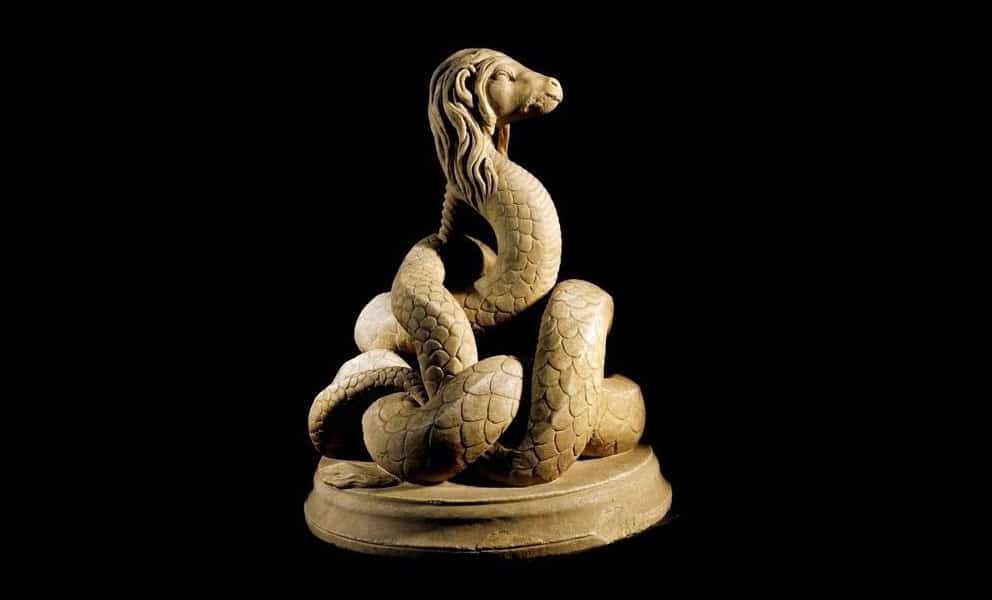
The Roman Emperor Commodus, who reigned from 180 to 192, had many traits with Nero and Alexander. His advisers soon saw that he wasn’t particularly concerned in the administration’s day-to-day activities and that he would be simple to influence with flattery. His was the way of r aised expenditure on amusement and free meals, just like Nero, to win the people over. Additionally, he was a dedicated self-promoter. He proclaimed that he was Hercules reincarnated near the conclusion of his rule, and had to be referred as such. He participated in gladiatorial contests and donned lion skins, like Hercules had in the tales. Naturally, he took precautions to ensure his safety. He protected himself from attack by fighting animals in the wild from an elevated platform. He ensured that the people he battled were bodily incapable of defending themselves. Commodus’ persistent paranoia and aggression gradually wore on others and ultimately, his mistress got him poisoned unsuccessfully. Subsequently, his wrestling coach Narcissus (ironically) strangled him in the bathtub.
The conception of organised religion too has been afflicted by healthy doses of narcissism. This is seen in the selection of a specific populace for receiving the grace of God. For instance, Deuteronomy 14:2 says
כִּ֣י עַ֤ם קָדֹושׁ֙ אַתָּ֔ה לַיהוָ֖ה אֱלֹהֶ֑יךָ וּבְךָ֞ בָּחַ֣ר יְהוָ֗ה לִֽהְיֹ֥ות לֹו֙ לְעַ֣ם סְגֻלָּ֔ה מִכֹּל֙ הָֽעַמִּ֔ים אֲשֶׁ֖ר עַל־פְּנֵ֥י הָאֲדָמָֽה׃ ס
“For you are a holy people to the Lord your God, and the Lord has chosen you to be a people for His own possession out of all the peoples who are on the face of the earth.”
One wonders what happened to all the other people on the face of the earth! Notwithstanding the number of unholy occurrences that happened with the agency of these ‘holy people’ in the land we now know as Israel. While still maintaining a comparison with other gods (unlike in Dharmic traditions where there is a fundamental reality – Brahman, which exists above and beyond all `gods’), the Jewish God Yahweh was regarded as the greatest of all the gods, as in Exodus 15:11
מִֽי־כָמֹ֤כָה בָּֽאֵלִם֙ יְהוָ֔ה מִ֥י כָּמֹ֖כָה נֶאְדָּ֣ר בַּקֹּ֑דֶשׁ נֹורָ֥א תְהִלֹּ֖ת עֹ֥שֵׂה פֶֽלֶא׃
“Who among the gods is like you, O Lord? Who is like you—majestic in holiness, awesome in glory, working wonders?”
This element of exclusivism has been the cause of ‘othering’ of those in the faith and those not in it. This behoves us to think, to wonder, whether the reality of all realities – the origin of all the Universe, in theistic traditions, could actually have such parochial biases, especially around geocentric considerations! Jewish precepts like the ones found in the Book of Isaiah, which states that Israel will serve as a “light to the nations” in order that not just Jews but Gentiles as well would engage in the coming messianic kingdom, helped to moderate this exclusivist propensity in later Jewish tradition. Nevertheless, this movement indicated triumphalism, a belief connected to exclusivist tendencies. In accordance with this doctrine, persons who are ordinarily other-ed are given some degree of integration if they adopt the genuine faith or the bare minimum of its requirements. One of the effects of religious exclusivism is acts of bigotry. According to this perspective, all viewpoints are false and one’s faith is the sole path to deliverance and the truth. Such a religiously restricted political movement could lead to tyranny and absolutism in the name of faith if it is supported by such a religiously exclusive viewpoint, as was seen in the case of the Inquisition. Whether or not Jesus actually recommended it is anyone’s guess, but the Christian church has emphasized that Jesus is the sole route to God since the time of its first teachings. Paul believed that only trust in Jesus’ death and resurrection was sufficient fer deliverance, and that neither careful observance of the Law of Moses nor other deeds of kindness and virtue could accomplish this.
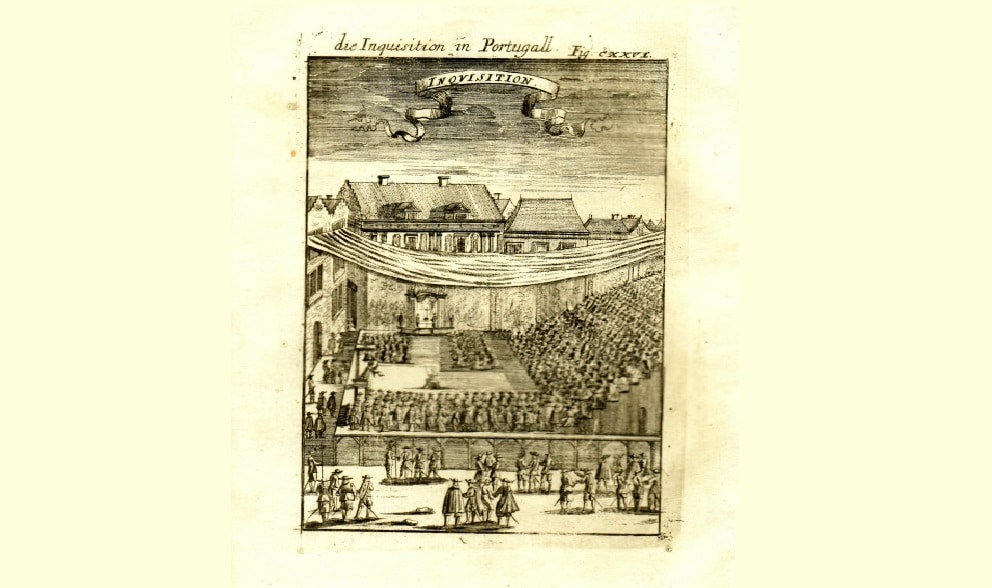
Church Fathers who believed that all humanity will ultimately find their way to God, like Origen, were in the minority. Most people believed that only orthodox Christians would be redeemed and that anyone who did not accept the genuine faith when they were still living would be damned for all eternity. This exclusivist tendency was also seen in the early Islamic trajectory. We can see the description of a conflict with Pagan traditions at a fairly early stage, particularly on the concept of idolatry, in Al Anbya (21:52-67). The summary disavowal of the spiritual efficacy of alternate religious practices was later seen when Muslim iconoclasts destroyed temples and broke images of Hindu deities during the Islamic conquests in the Indian subcontinent primarily between the 12th and 17th centuries AD.
Unfortunately, the narcissistic creation of a religious order even when the one around whom it was created may not have sought was also seen around a luminary from a Dharmic religion – Buddha. Buddha never spoke of being the leader or initiator of an organised order or cult. In today’s age, Buddhism has changed from being a path of spiritual practice and an intellectual route reserved for the privileged to becoming a worldview that is widely accessible to the general public and where unfortunately consumerism, commodifying tendencies, and mediatization are all elements of the neo-liberal economy where mysticism and the spiritual truth is for sale. Enlightenment has never been simpler, as Gary Gach famously put it. Even in Hinduism, there was a gradual development of narcissistic tendencies that possibly came from the grandiosity and pomposity that the political and religious elite ascribed to their domains of existence and expertise in the later Puranic and other literary source, be it while describing Devraj Indra or in terms of speaking of Digvijay (conquest of all four directions) when the geographical expanse of the kings would be fairly Indic. One of the most unfortunate byproducts of narcissism was seen in the destruction of the Vijaynagar Kingdom due to the megalomania of Aliya Rama Raya, which led him to underestimate the combined might of the Deccan sultanates at the Battle of Talikota.
The relevance of the myth of Narcissus in the largely Eurocentric colonial context, in the medieval and modern ages, cannot be understated. We can think of presenting the colonial relationship in terms of a narcissistic dynamic, with the colonised being Echo while the colonising power is portrayed as Narcissus. We might conceive of imperialist relations using the contemporaneous depiction of megalomania, which alternates between sentiments of grief, wrath, and retribution. Subordinate populations may prove to be of great psychological value to their colonizers since they may be forced in a plethora of ways to mirror an exalted self-concept back to the colonist. What we see in imperialist settings is a manifestation of the true narcissist’s compulsive drive to stifle subjectivity in the other. The myth of Narcissus serves as a foundation for not only depicting narcissistic grandiosity but, ironically, also a relational failure.

A failure to be able to relate, to be human; a failure to be able to love and be loved, apart from and besides the self-love that his high self-image induces. Colonialism’s anti-relational foundations appear to have driven the West to pursue the values of liberty and sovereignty incessantly, albeit framed in terms of political insulations, imperviousness, and invulnerability. When India’s independence movement was being countered with the proposal for offering dominion status, it was a qualified offering that did not break asunder the larger composite construct of the British Raj. The very inception of the British East India Company was as a result of the defeat of the Spanish Armada and a desire to capture the Far East trade from the Spanish and Portugese. Till then the maritime capabilities of the British were scoffed at by the Spanish and other early European colonial powers. It was in this acute sense of having to prove themselves and finding their footing that the British establish the EIC. So much so for the Narcissus complex of being sans love, even as the proverbial reflection in the water seemed all so soothing!
A Modern Epidemic of Conceit
In today’s society, narcissism has taken centre stage in public speech and interaction. There isn’t a day that goes by when the citizenry of myriad countries isn’t thinking about the ramifications of the conceited tendencies of their politicians, industrialists, bureaucrats, and diplomats. Are individuals growing vainer? Why is megalomania on the upsurge? The growth of megalomania has spread across all cultural contexts and demographic groups, becoming a global issue. In the 1960s, Campbell and Twenge published The Narcissistic Epidemic, which sounded the proverbial siren. The media outlet Newsweek went on to explain the how and when of the narcissistic upsurge:
“…when people began to cast off societal constraints and expectations in favor of exploring their own human potential. This movement didn’t begin with a purely narcissistic slant, yet by the 1970s it had morphed into self-admiration, self-expression, and self-absorption. In the 1980s those qualities gave way to self-centeredness and self-indulgence, and it was all downhill from there.”
Over the last few decades, society has shifted from emphasizing the concept of an ensemble to emphasizing that of the element, in society. The self-esteem movement played a significant role in this. It found that the secret to accomplishment in life was having high self-esteem. Teachers and guardians began praising their kids for their specialness and individuality to instil confidence in them. Instead of enabling their offspring to earn self-esteem via perseverance, families tried to “bestow” it upon them. It became increasingly difficult to satisfy the fundamental need for genuine interpersonal bonds even as the social fabric has weakened. What is most beneficial for other individuals and the family have become secondary to what is ideal for oneself. The modernization of the societal structure appeared to place the highest value on reputation, fortune, and notoriety. All of this, along with the deterioration of social relationships, led to the development of a “bare ego, bereft of sociocultural context.” I am reminded of the narcissistic lyrics of Frank Sinatra’s song ‘My Way’
“For what is a man, what has he got?
If not himself then he has naught
Not to say the things that he truly feels
And not the words of someone who kneels
Let the record shows I took all the blows and did it my way”
Speaking of popular culture, many believe that part of the reason for this modern epidemic of conceit is the pre-eminence of the American society. How true is that? The recent occurrence of `just wars’ and the subtle imposition of the brand of materialism that affects people the world over possibly arises from the American belief that they and their country are indisputably better than all other individuals and societies on the planet. When does patriotic fervour cross the line between good citizenship and dangerous jingoism? American ideas of supremacy have traditionally been rooted in myths about the special generative abilities of the land, in visions of being the chosen ones, in the enduring lore of frontier autarky, in a strong sense of America’s detachment and idiosyncrasy, in the awareness of abundance, and lastly in the idea that there is a certain universality that one can ascribe to the American worldview and ideology.
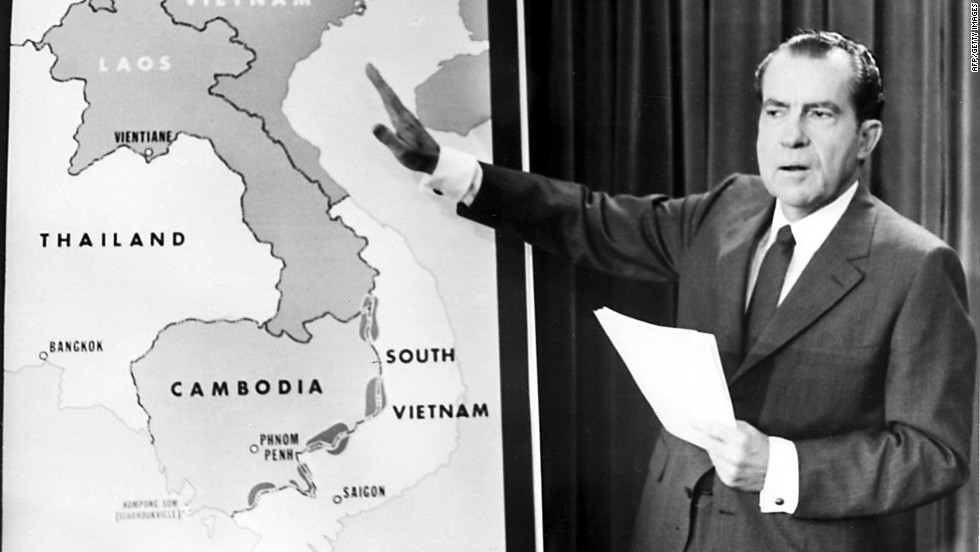
This makes the Americans more prone to exceptionalism and a particularly overbearing brand of nationalism than practically any other contemporary country. It is not surprising, given thoughts of its founding fathers like Thomas Jefferson (President of the United States, 1801–1809), who highlighted the value of white settlement and economic growth in the West, and undertook radical egalitarian moralizing, even though he owned more than 600 slaves in his lifetime! Teddy Roosevelt was another narcissistic American president. It is believed that he would always find a way to bring up the count of Spaniards he killed while “spearheading” the attack up San Juan Hill, during dinner parties. And then we have our most recent US President Donald J. Trump, who famously said: “I’m a most stable genius.”
The self-centered and emulous conduct of different interest blocs in society and politics, with a lack of the necessary empathy to rethink the world from one another’s perspective points, has intensified race – based and ideological antagonism, and as a result, a certain tribalism. The conceited actions of bankers and customers alike, who produced a time-delay snare of near-term avarice over long-term reasoning, can be partially blamed for the financial catastrophe. Debt-financed “ostentatious consumption”—items bought to improve one’s standing in the eyes of others instead of out necessity—has widened America’s trade deficit. And the focus on self-sufficiency, rather than on connectedness, might be attributed in part to the lack of trust in government. To resolve the local and global challenges today, it is essential to acknowledge the problematic links with narcissism. Additionally, policy makers need to give more thought to ways to advance economic and political advancement while keeping or fostering the qualities of a coordinated, self-critical collective.
Wokeism is a fad that has spread like wildfire. The presence of narcissism on the self-tagged Woke crowds is seen in their perception of reality, life and God. According to them, God’s purpose is to help people “feel good and joyful about themselves and their lives,” acting as a Heavenly Chamberlain and Celestial Counselor rather than working toward one’s salvation and deliverance. The White Woke individual is also seen to seek expiation of collective guilt of racism and historical discrimination again non-White communities by excusing the harmful effects of disruptive and even criminal actions by individuals from non-White communities, usually in retaliation to some limited provocation or cause. This is condescending and highly narcissistic, since it gives off this idea that the White Woke is always at a pedestal and can choose to excuse the wrongdoings of others to balance the historical socio-political scales in society.
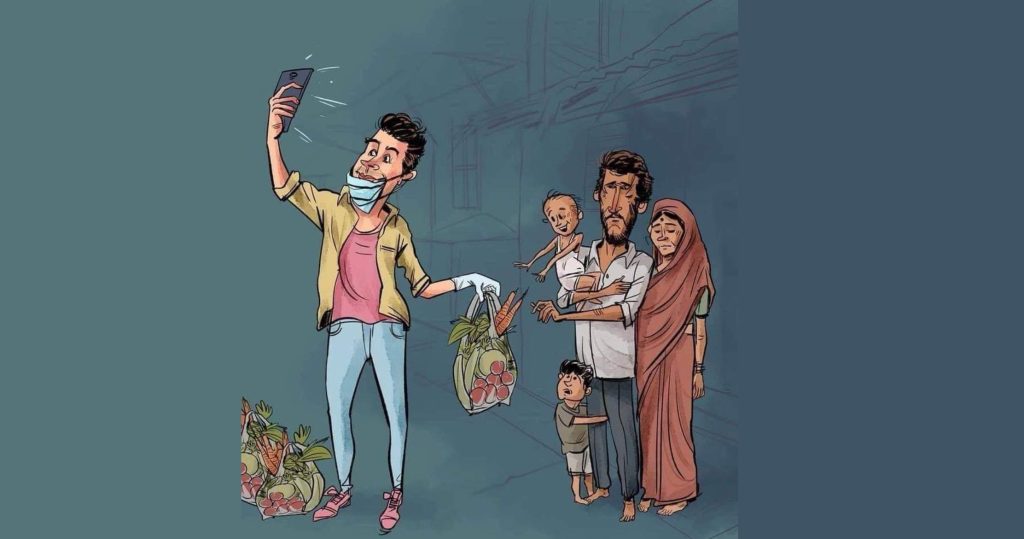
The Woke regard themselves as not being homophobic, xenophobic, sexist, racist or transphobic by default, and claim a moral superiority due to their sense of belongingness to the broad stream of Wokeism. The Woke seek their identity by negating: they are not certain things, even as they are glorified virtue signallers. They have found their herald in social media, where they go on and on about how righteous they are, often hypocritically. So, you will have Woke internet personalities rambling about reducing carbon footprints even as they go around the world on jet aeroplanes. The narcissistic Woke must also know that it is not the duty of everyone else, particularly those from socio-economic minority groups, to update them all the time with the experiences of discrimination and thoughts thereof.
More broadly, there is a certain peculiar predisposition in and of the West which can be problematic and the primary premise for modern narcissism. Works of scholars like Jonathan Haidt and Joseph Henrich (with the seminal book ‘The WEIRDest People in the World’) take a keen look at Western psychology and how it arose from their history and geography. The acronym WEIRD, popularised by Henrich, stands for `Western, Educated, Industrialised, Rich, Democratic’, and is characterised as follows by Henrich
“WEIRD people are highly individualistic, self-obsessed, control-oriented, nonconformist, and analytical. We focus on ourselves — our attributes, accomplishments, and aspirations — over our relationships and social roles. We aim to be “ourselves” across contexts and see inconsistencies in others as hypocrisy rather than flexibility. Like everyone else, we are inclined to go along with our peers and authority figures; but, we are less willing to conform to others when this conflicts with our own beliefs, observations, and preferences. We see ourselves as unique beings, not as nodes in a social network that stretches out through space and back in time. When acting, we prefer a sense of control and the feeling of making our own choices.”

Strangely, such people have been observed as being more hospitable and trustworthy toward outsiders than members of various other civilizations. In spite of the fact that our cultural movement has been towards what may be described as detached prosocial behaviour, this occurs in a pretty superficial way. People began to embrace impersonal regulations and unbiased standards that apply to everyone in their organizations or enclaves, regardless of social ties, tribal identification, or socioeconomic background as existence has become more and more characterized by dealing with strangers or non-relations. We seem to have `outsourced’ our trust to large establishments, such as the state, in the hope that others would abide by the same rules and regulations as us, on the whole. But the key question is: what transpires when we start deconstructing those establishments? We are currently witnessing this. Political interest groups and parties, the journalistic fold, the entertainment business, internet corporations, and human resource managers all around the world are being eaten alive from within as postmodernism, reconstructivism and social semiotics gain hold. An essential progression is the need to critique and dissect. It aids in challenging established narratives, to begin with. Subverting inflexible edifices creates the latitude that culture needs to rejuvenate from the fringes it had been neglecting or undermining. However, this process must be guided by a higher ideal or goal in order to progress beyond endless disassembly.
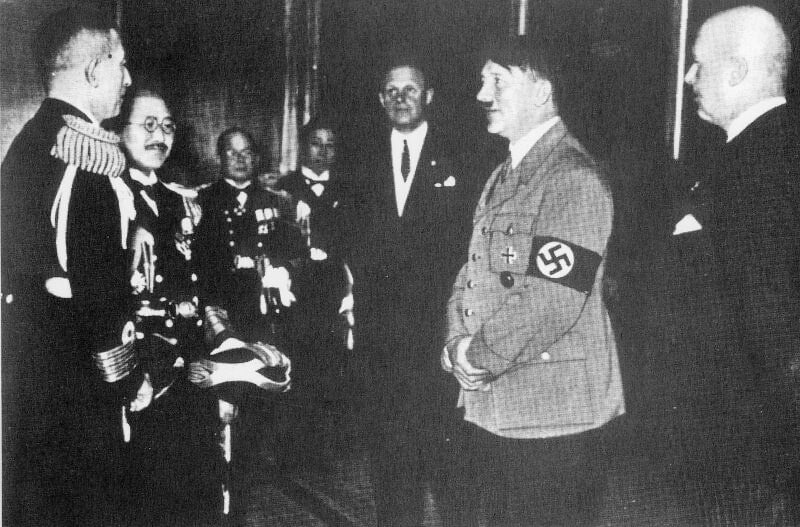
Characteristics of the personality are intimately correlated with the cultural surroundings. Cultures can be categorized as aligning with either individualism or collectivism. Collectivism places more emphasis on the value of social ideals whilst the individualistic societies promote, by definition, a larger focus on individuality. Affiliates of individualistic societies may be more conceited than people from collectivistic communities since megalomania is characterized by a considerable concentration on oneself, a compelling craving for adulation, and extravagant illusions. In contrast to Freud and other prominent cognitive behavioural analysts, Karen Horney did not propose a primary narcissism and instead considered the narcissistic persona as the result of a particular early milieu operating on a particular predisposition. She believed that conceited desires and inclinations are not a part of the human condition. Heinz Kohut proposed that megalomania is a phase of normal development during which there is a strengthening of the child’s developing sense of self by reflecting his positive traits. If the parents or other guardians don’t offer their child enough, the youngster will mature with a fragile and imperfect understanding of who they are.
However, the finally frontier remains that of parochialism and dogma. Narcissism percolates through the cracks and crevices of various levels of society, from family and community, to nation and the global geopolitics in the primacy and absoluteness ascribed to constructs and ideologies. This is seemingly so integrated that modern society often does not even realise this tendency. As the `Prince of Paradox’ Gilbert Keith Chesterton once said,
“The special mark of the modern world is not that it is skeptical, but that it is dogmatic without knowing it”
Scientism is one of the most apparent manifestations of narcissism in modern ideology. Scientism as an epistemological framework is a rather restrictive paradigm. Scientism considers science to be the sole credible source of conversance, opposing elements of subjectivity as well as supranatural modes such as cryptesthesia, transcendence, and what theists would call sanctifying grace. Kurt Godel destroyed the foundation of scientism when he showed that any rigorously logical system of mathematics contains assertions that cannot be supported or refuted on the strength of the system’s axiomatic foundations. Post-modernism acknowledges that it is adrift in an uncharted ocean of uncertainties. We live in a hetrotopia, where there are no meaningful links between people, claims Foucault. The hallmark of the post-modern society is the sense of being lost. The future is uncertain for everyone. That is seemingly the zeitgeist of the age! It is in the momentary that we seek absolution. An absolution from any and all obligation to anything but oneself. This absoluteness and sense of hollowness has climaxed into apprehensions around mortality itself. Arrant intellectual and emotional affirmation of the truth that we are transient beings, and that the conceited libido-driven ego is a temporal construct. This extraordinary achievement, in my opinion, hinges not only on the triumph of independent thought and absolute objectivity against narcissistic claims, but also on the development of a superior kind of megalomania. The luminaries who have attained the worldview that the Romans alluded to as existing sub specie aeternitntis do not exhibit dejection and despair but rather are quietly proud and oft harbour a fairly benign derision of the riffraff who, unable to enjoy the spectrum of experiences that life offers, is still terrified of quietus and trembles at its advent. In the following verse, Goethe beautifully expressed his antipathy for individuals who cannot embrace mortality as an inevitable aspect of life:
Und so lang du das nicht hast,
Dieses: Stirb and werde!
Bist du nur ein truber
Gast Auf der dunklen Erde
At the societal level, the introduction of nuance and comprehensiveness in view, and at the individual level, an embracing of one’s mortality and non-absoluteness are the only solutions to the chronic pandemic of narcissism that afflicts humanity today. In ancient Indic writings, Ahaṁkāra is portrayed as self-sense, as in the Chāndogya Upanishad, which also makes the observation that individuals who are unable to distinguish between ātman and one’s corporeality will confuse the self-sense with the corporeal. The Viveka Cūḍāmaṇi of Śankarācārya contains ślokas connected to ahaṁkāra nindā, aham-padārtha-nirūpaṇa and antaḥkaraṇa that explain the nature and purpose of ahaṁkāra. In the 103rd śloka, Śaṅkara delineates ahaṁkāra to be the antaḥkaraṇa dwelling in the motor and sensory organ systems and the body as aham with abhimāna in the reflected refulgence of ātman. In modern terms, Śankarācārya is asking one to give up one’s sense of identity with bio-psycho-social aspects of human nature, which are part of ahaṁkāra, in order to realize the ātman, attain peace and to realize everlasting bliss. The paradoxical (and key) thought is that neither ego nor non-ego has any absoluteness that can be attached to them. However, since such a transcendence of the binary is not easy to understand or straightforward for all, the gross ego of the individual has been asked to be surrendered to a higher ego – of the Universal Self, in Dharmic traditions, which highlight that this surrender is attainable through self-inquiry, going beyond theism per se. Since the self is part of the greater Universal truth, an investigation of the same through introspection and self-inquiry could provide a window into the beyond. More importantly, at an empirical level, this liberates one from the shackles of parochial constructs and ideas, from aspects of life that are ephemeral and conditioned, from nuances of existence that are not quite fundamental or absolute. It is in that realisation, in that lived experience, that one is free from narcissism and attains peace and joy.
In Conclusion
The primacy of narcissism in the contemporary world is bothersome. It hampers the evolution of the individual by entrapping humanity in a vicious cycle that relies on megalomaniac proclivities and, in turn, feeds the narcissism of individuals. The rise of crony capitalism, unchecked materialism and a growing movement towards parochialism and dogma, all, speak of the rise of narcissism at various levels of existence. What we need is the pursuit of emancipation at all these levels, from the clutches of absoluteness that we ascribe to both – our existence and our constructs. What we need is the use of agency and discernment to see what is the aim and nature of our existence and not the accoutrements that facilitate our shallow self-aggrandizement. For the latter paves a pointless path, a labyrinth of the illusory. As Sri Ramakrishna Paramhansa said, speaking of the clouds of narcissism preventing even God’s light to light the path, in his words
“যদি তুমি মনের মধ্যে অহংকার কালো মেঘ পুষে রাখো,
সয়ং ইশ্বর ও আলোর পথ দেখতে পারবে না।”


